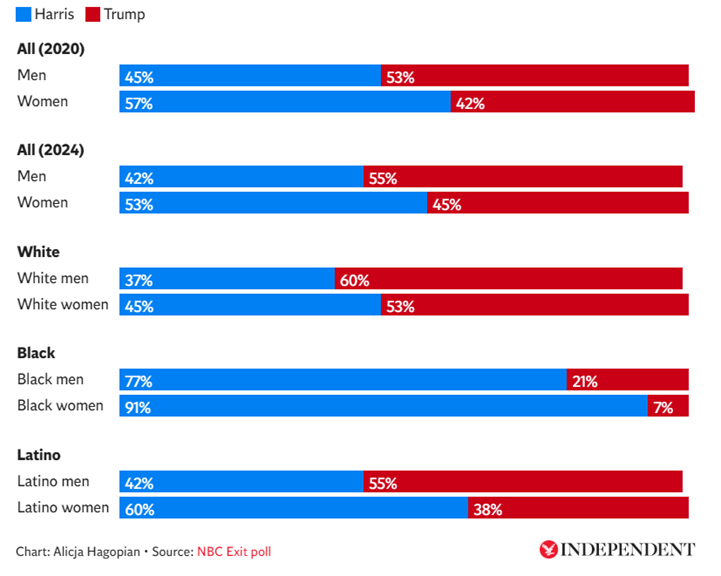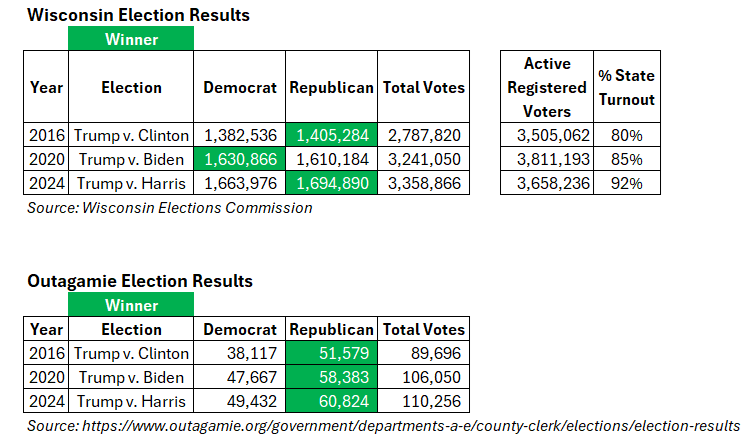The November 5 election sent a loud and unmistakable message that the American people rejected the disfunction, destitution, and divisiveness of the past 3-3/4 years.
Record-setting inflation, unrestricted illegal immigration, government persecution of citizens exercising legally protected speech, and a general arrogance emanating from a White House that was out of touch with the majority of the American people, all combined not only to politically rehabilitate Donald Trump but also lead to his sweeping victory.
As a volunteer who helped recruit, train, and deploy Poll Observers on November 5, I saw and heard firsthand your concerns and felt the collective anxiety regarding the overall direction of the country.
Donald Trump’s margin of victory was impressive not only on a state-by-state basis, but also on a demographic level. One example from the UK Independent highlights this:
 On a state and county level, not only was Trump’s margin of victory impressive given the divided nature of the electorate, but he also drove turnout to an eight-year high.
On a state and county level, not only was Trump’s margin of victory impressive given the divided nature of the electorate, but he also drove turnout to an eight-year high.

So, what does this mean for the future of the Republican Party now that Trump is entering the final chapter of his political career? Will the gains he made across the electorate be locked in, or will this be looked back upon as a one-off event? These questions are extremely important and pertinent as we digest the results and plan the future of what being a Republican means.
We have a unique opportunity to re-introduce conservative values and ideas to a population that rejected the extreme Liberalism on display since 2020. The Democrats were rejected up and down the ballot and lost significant ground in their strongholds of California, New Jersey, and New York. Trump is not a traditional conservative per se. He is more populist in outlook. This is not necessarily a negative. His instincts are rooted in a common-sense approach with a conservative bent.
I believe people are prepared to listen to arguments only when they are ready. This usually happens only after a major event opens their eyes and makes them question preconceived notions. The November 5 election was such an event. It was a definitive and unequivocal rejection of the current national trajectory and a demand that we change course.
The question posed earlier is how do we lock in the gains made? How can the Republican Party expand its base in non-traditional demographics and explain how the ideals of hard work, individual accountability, and respect for dissenting opinions combine to create a civil and healthy community?
This task won’t be completed in a single election cycle. It will require a concerted effort from the national, state, and local parties. We will need to bring this message to a new generation of voters who have shown they are willing to consider change or at least listen to different opinions. This will be a heavy lift – a lift that became possible only by Trump’s re-election. If we throw this opportunity away, go back to considering elections as one-off events, and not weave together a positive, compelling narrative, then we will miss the opportunity handed to us.


